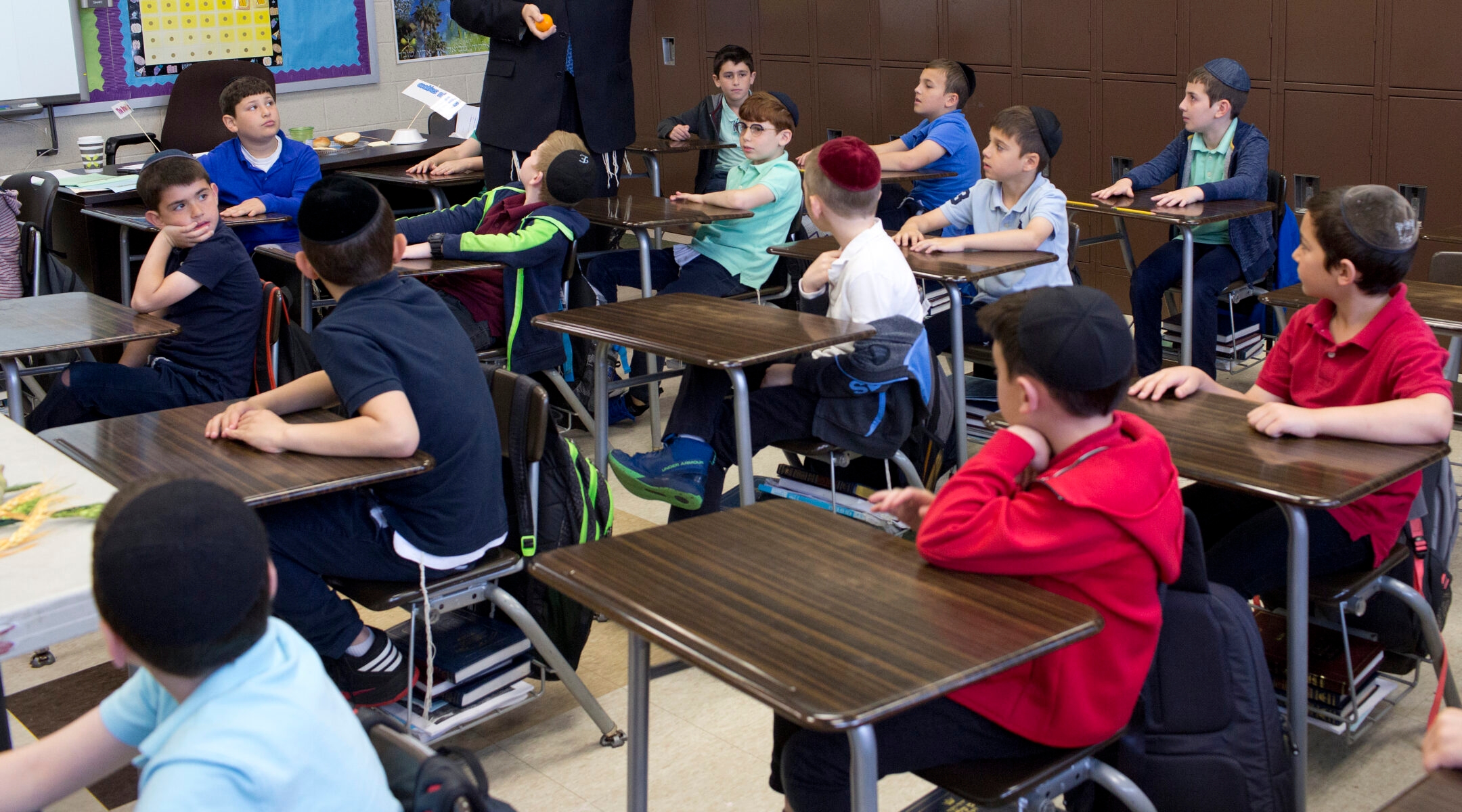BALTIMORE (JTA) — The coronavirus pandemic has made it even more difficult to expect parents alone to bear the huge costs of educating their children.
During the past few months, online instruction has become our new normal. This critical innovation has salvaged our children’s education, but it’s inferior to in-person instruction and requires a higher level of parental involvement. It creates significant stress and challenges for working parents, single parents and parents of multiple school-aged children.
For private schools, including Jewish day schools like those associated with the Orthodox Union, these issues are entwined with challenging economic realities. Some parents, heavily burdened by high tuition in the best of times, are suffering the economic consequences of the pandemic and are concerned about the inevitable weaknesses of the virtual school experience. They may balk at paying the same yeshiva tuition rates for a year of remote learning.
But we need to remember that the schools themselves are in a bind, too. They must invest in the things that will make physical reopening possible: new air filtration systems, increased cleaning costs, personal protective equipment, Plexiglas partitions and other infrastructure changes, as well as more staff to teach smaller classes. They also must be prepared for the real possibility of switching to remote schooling at a moment’s notice — a challenge in other ways.
To weather these challenges, and for the longer term, we must produce more than educational tweaks and expanded scholarship pools. All of us who care about our schools and our families need to create a paradigm shift in education funding.
When you’re paying day school tuition or supporting an individual institution, you’re not just paying for the costs of teacher salaries and the building itself — you’re investing in the future of our communities. So we need to think communally instead of transactionally.
We used to do this more. As Yossi Prager wrote for Jewish Action in 2005, American Orthodoxy’s vast day school system was built and nurtured by countless individuals who understood — in the Talmudic tradition of Joshua ben Gamla — that thriving Jewish day schools are a communal imperative. The funding model for these institutions was dependent more on communal support and far less on tuition dollars.
The sacrifices and commitment of these builders and funders are reminiscent of the magnificent Talmudic story of the man who planted a carob tree that would not bear fruit for 70 years, by which time he would be long gone. Nevertheless, he happily invested in planting for future generations, who because of his efforts would find their world filled with beautiful fruit trees.
While funding our schools and yeshivas remains a core communal responsibility in practice, many of these institutions have come to depend increasingly on tuition payments. So instead of being community-supported institutions, many schools rely on the current parent body for funding.
The current system of financing Jewish education is relatively recent, and subsidizing tuition for those who struggle to afford it was viewed as a communal obligation into the 20th century. In his Hatakanot BeYisrael, Rabbi Yisrael Schepansky notes the varied ways in which communities levied taxes to support tuition for those unable to pay: Some communities assessed based on means, others imposed a head tax and at least one community levied a kind of “sales tax” on shechita, or kosher slaughter.
Rabbi Yechiel Michel Epstein, in his Aruch Hashulchan (Yoreh Deah 245:9-10), wrote that fathers who are able to hire teachers for their children and grandchildren are obliged to do so, and if a parent of means nonetheless wishes to enroll his child in the community yeshiva, he is obliged to contribute “much money” in order to benefit the poorer children of the community.
The conclusion is inescapable: In the Jewish worldview, Jewish education is not a consumer good but a communal obligation.
We must explore the causes of the shift away from this philosophy and what can be done to reverse it for the longer term. But today, with virtual schooling a likely piece of this year’s plan, we must also mobilize to minimize any immediate and lasting damage to our children, families and institutions.
All of us in the community-at-large, whether or not we have school-aged children, must come together to support both schools and parents by shouldering more of the financial burdens of keeping our schools open. We must organize as communities and galvanize support that assists the schools while bringing real and immediate relief to parents.
At the same time, parents should also recognize the challenges all schools face and realize that even if they may not be benefiting as much from the school this year, they must do their part to ensure the school will be around and be equipped to educate their child and others in the future.
And schools should acknowledge the stresses and challenges faced by their parent body, recognizing that in a framework of virtual school — where students are getting less — parents may be less ready to pay the usual fare.
This year, we all need to think beyond what we will be getting for our dollars. We need to keep planting and caring for the carob trees so that they will be there for us, for our children and grandchildren, and for our broader communal future.
JTA has documented Jewish history in real-time for over a century. Keep our journalism strong by joining us in supporting independent, award-winning reporting.







